|
|
|
Книги Crystal David

|
What precisely are structuralism, semiotics and sociolinguistics? What distinguishes pidgins from creoles, gerunds from gerundines and the hard palate from the soft palate? How many people speak Macedonian, Malay or Makua? Now in its second edition, David Crystal's superbly authoritative dicionary provides answers to all these questions and to many hundreds of others concerned with language and linguistics. • Major new edition, with fully updated and data and statistics new entries on the critical issues of ecolinguistics, endangered languages and human linguistic rights • Succinct descriptions of many hundreds of languages • Clear definitions of grammatical and literary concepts • Full coverage of the terminology used in such disciplines as language teaching and learning, speech disorders, desk top publishing and stylistics • Over 60 diagrams and cartoons |

|
When and why did 'thou' disappear from Standard English? Would a Victorian Cockney have said 'observation' or 'hobservation'? Was Jane Austen making a mistake when she wrote 'Jenny and James are walked to Charmonth this afternoon'? This superbly well-informed — and also wonderfully entertaining — history of the English language answers all these questions, showing how the many strands of English (Standard English, dialect and slang among them) developed to create the richly-varied language of today. |

|
David Crystal's classic English as a Global Language considers the history, present status and future of the English language, focusing on its role as the leading international language. English has been deemed the most 'successful' language ever, with 1500 million speakers internationally, presenting a difficult task to those who wish to investigate it in its entirety. However, Crystal explores the subject in a measured but engaging way, always backing up observations with facts and figures. Written in a detailed and fascinating manner, this is a book written by an expert both for specialists in the subject and for general readers interested in the English language. |

|
Featuring Latinate and Celtic words, weasel words and nonce-words, ancient word (loaf) to advanced (twittersphere) and spanning the indispensable words that shape our tongue (and, what) to the more fanciful (fopdoodle), the author takes us along the winding byways of language via the rude, the obscure and the downright surprising. |

|
This new, thoroughly revised edition of the acclaimed Cambridge Encyclopedia of Language incorporates the major developments in language study which have taken place since the mid 1990s. Two main new areas have been added: the rise of electronic communication in all its current forms from email to texting, and the crisis affecting the world's languages, of which half are thought to be so seriously endangered that they will die out this century. All language statistics have been updated, and additional information provided about their linguistic affiliation. All topics involving technology have been revised to take account of recent developments, notably in phonetics, language disability, and computing. Maps have been revised to include new countries or country names. Special attention has been paid to fast-moving areas such as language teaching and learning. The text design has been completely updated with many new illustrations throughout. |

|
For decades, people have been studying Shakespeare's life and times, and in recent years there has been a renewed surge of interest in aspects of his language. So how can we better understand Shakespeare? David Crystal provides a lively and original introduction to Shakespeare's language, making his plays easily accessible to modern-day audiences. Covering the five main dimensions of language structure — writing system, pronunciation, grammar, vocabulary and conversational style — this book demonstrates how examining these linguistic 'nuts and bolts' can help us achieve a greater appreciation of Shakespeare's linguistic creativity. |

|
Who formed and shaped the English language? David and Hilary Crystal take us on a journey through Britain to discover the people who gave our language its colour and character; Saxon invaders, medieval scholars, poets, reformers, dictionary writers. Part travelogue, part history, this beautifully illustrated book is full of unexpected delights. |

|
The rapid endangerment and death of many minority languages across the world is a matter of widespread concern, not only among linguists and anthropologists but among all concerned with issues of cultural identity in an increasingly globalized culture. By some counts, only 600 of the 6,000 or so languages in the world are 'safe' from the threat of extinction. A leading commentator and popular writer on language issues, David Crystal asks the fundamental question, Why is language death so important?, reviews the reasons for the current crisis, and investigates what is being done to reduce its impact. The book contains not only intelligent argument, but moving descriptions of the decline and demise of particular languages, and practical advice for anyone interested in pursuing the subject further. |

|
In recent years, the Internet has come to dominate our lives. E-mail, instant messaging and chat are rapidly replacing conventional forms of correspondence, and the Web has become the first port of call for both information enquiry and leisure activity. How is this affecting language? There is a widespread view that as 'technospeak' comes to rule, standards will be lost. In this book, David Crystal argues the reverse: that the Internet has encouraged a dramatic expansion in the variety and creativity of language. Covering a range of Internet genres, including e-mail, chat, and the Web, this is a revealing account of how the Internet is radically changing the way we use language. This second edition has been thoroughly updated to account for more recent phenomena, with a brand new chapter on blogging and instant messaging. Engaging and accessible, it will continue to fascinate anyone who has ever used the Internet. |

|
The Oxford Illustrated Shakespeare Dictionary is the first of its kind, a brand new illustrated alphabetical dictionary of all the words and meanings students of Shakespeare need to know. Every word has an example sentence selected from the twelve most studied plays including Macbeth, Hamlet, Romeo and Juliet, A Midsummer Night's Dream, and Henry V. Usage notes and theatre notes provide additional background to Shakespearean times and the performance of his plays. Further support is provided by language panels on select topics like the humours, swearing, and stage directions, and full-colour illustrated thematic spreads on special feature topics from clothes and armour to music and recreation. The dictionary is easy to use with its clear signposting, accessible design, and expertly levelled contemporary look and feel. It is the perfect support for a full understanding of Shakespeare, created by renowned authors Professor David Crystal and actor Ben Crystal, a father and son team who combine for the first time the academic and the theatre, bringing together language, literature, and lexicography in this unique Shakespeare dictionary of global appeal. |

|
This is the definitive survey of the English language — in all its forms. Crystal writes accessibly about the structure of the language, the uses of English throughout the world and finally he gives a brief history of English. The book has been fully revised and there is a fascinating new chapter on 'The effect of technology' on the English language. |
|